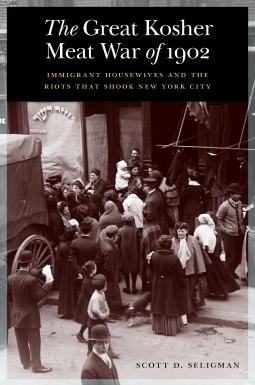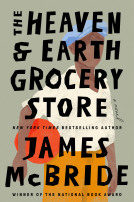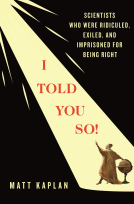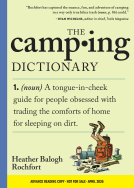
The Great Kosher Meat War of 1902
Immigrant Housewives and the Riots That Shook New York City
by Scott D. Seligman
This title was previously available on NetGalley and is now archived.
Send NetGalley books directly to your Kindle or Kindle app
1
To read on a Kindle or Kindle app, please add kindle@netgalley.com as an approved email address to receive files in your Amazon account. Click here for step-by-step instructions.
2
Also find your Kindle email address within your Amazon account, and enter it here.
Pub Date Dec 01 2020 | Archive Date Dec 31 2020
University of Nebraska Press | Potomac Books
Talking about this book? Use #TheGreatKosherMeatWarof1902 #NetGalley. More hashtag tips!
Description
2021 Independent Publisher Book Award, Gold Medal Winner
2020 National Jewish Book Award, Finalist
2020 American Book Fest Best Book Awards Finalist in the U.S. History category
2020 Foreword Indies Book of the Year Finalist
In the wee hours of May 15, 1902, three thousand Jewish women quietly took up positions on the streets of Manhattan’s Lower East Side. Convinced by the latest jump in the price of kosher meat that they were being gouged, they assembled in squads of five, intent on shutting down every kosher butcher shop in New York’s Jewish quarter.
What was conceived as a nonviolent effort did not remain so for long. Customers who crossed the picket lines were heckled and assaulted and their parcels of meat hurled into the gutters. Butchers who remained open were attacked, their windows smashed, stock ruined, equipment destroyed. Brutal blows from police nightsticks sent women to local hospitals and to court. But soon Jewish housewives throughout the area took to the streets in solidarity, while the butchers either shut their doors or had their doors shut for them. The newspapers called it a modern Jewish Boston Tea Party.
The Great Kosher Meat War of 1902 tells the twin stories of mostly uneducated women immigrants who discovered their collective consumer power and of the Beef Trust, the midwestern cartel that conspired to keep meat prices high despite efforts by the U.S. government to curtail its nefarious practices. With few resources and little experience but steely determination, this group of women organized themselves into a potent fighting force and, in their first foray into the political arena in their adopted country, successfully challenged powerful, vested corporate interests and set a pattern for future generations to follow.
Advance Praise
“Master storyteller Scott D. Seligman weaves together the disparate narratives of New York’s 1902 kosher meat boycott, America’s first and only chief rabbi, and the notorious Meat Trust. Deeply researched and engagingly written, The Great Kosher Meat War of 1902 takes its delighted readers back in time to the teeming streets of the Lower East Side and the rough-and-tumble world of its immigrant Jews.”—Pamela S. Nadell, author of America’s Jewish Women: A History from Colonial Times to Today
“The first blow-by-blow account of the kosher meat boycott of 1902 and the Jewish immigrant women who devised and promoted it. Anticipating both the consumer movement and contemporary Jewish women’s activism, The Great Kosher Meat War of 1902 shows how commerce, labor, food, and gender explosively combined at a tempestuous moment in the history of New York City.”—Jonathan D. Sarna, University Professor and Joseph H. & Belle R. Braun Professor of American Jewish History at Brandeis University, and author of American Judaism: A History
Available Editions
| EDITION | Other Format |
| ISBN | 9781640123588 |
| PRICE | $32.95 (USD) |
| PAGES | 320 |
Links
Average rating from 24 members
Featured Reviews
Wow! What a compelling read! Where to begin?!
This fantastic book details the story of Russian and East European Jewish women's protests against continually rising Kosher beef prices in 1902 New York. The protests pit Jews against fellow Jewish people, including their trusted butchers. Violence became common as groups of women stormed butcher shops and patrons, literally ripping beef from shelves and hands, throwing it into gutters, reasoning that butchers would therefore need to lower prices. Police became involved and were attacked and injured. Butcher shops were boycotted and those which remained open were destroyed.
Impoverished families were desperate for food and as Jews, especially Orthodox Jews, were limited by strict Hebrew Old Testament laws. Amongst a plethora of other things, the book chronicles the important of railroads, kosher butchering process and struggles on all sides as well as outcomes such as new laws and acts passed under Roosevelt.
I had no idea of the gravity of this, having only read a brief mention. What a revelation! The chronology was helpful and the photographs were brilliant and personalized the accounts. Obviously the author did an unfathomable amount of research. The courage and determination of these women is impossible to grasp.
Anyone interested in Jewish history truly should read this book. It gives a completely different vantage point, very in depth and thorough.
 Jeremy B, Reviewer
Jeremy B, Reviewer
I was eager to read this book as I had never heard of these events taking place. The author gives a blow by blow description of what happened during a time which was eventful both in the history of New York and the history of the United States. This was the era of the big trusts which controlled many of the industries of the time including in this instance, the meat industry. A comparatively few corporations combined to set the price of meat throughout the US. The Jewish population was particularly vulnerable as kosher meat must be specially treated and the animal must be slaughtered in a particular way which makes the price of the meat higher even when subject to market prices. When the "Meat Trust" increased the price of kosher meat, the women of New York rose up and protested, sometimes violently. Many of them were beaten and jailed. The businesses they were rioting against were in most ways as much victims as they were; they were simply passing on price increases handed down from the trust.
This book was indeed very informative. It covered the subject well but I had the feeling that much of the information was culled from the newspapers of the time. There was little about what made these women so very desperate. I would have liked greater use of first person accounts and family histories among other topics. In addition, this story contained the begining of what were to become major themes in the twentieth and twenty-first centuries and an opportunity to expand on these beginnings was lost here at the expense of detailed explanations of anti-trust litigation. At least at first, these protests were led almost entirely by women. Although the leadership was eventually taken over by men we can see the blossoming of the women's rights movement. The victims of the trust were almost entirely immigrants. How they were seen and treated echoes in the news today. The New York City police treated the protesters brutally and they were fined excessively. Government sanctioned anti-semitism was clearly at work and although the author covered this briefly I would have liked to have known more.
This was a good book that did not live up to its potential to be a great book
 Lisa C, Reviewer
Lisa C, Reviewer
This book was absolutely fascinating. My mind just loved taking in all the new information. Would recommend.
 Librarian 24589
Librarian 24589
We should all read this book as it seems, in some sense, that history is repeating itself. Shortages, price hikes protests are all woven in the fabric of 2020. This war however, started with the women who were far more courageous than most - when you need something specific for your family and you can't get it - one tends to get riled, and these women were riled. Interestingly though how far the effects of this war were felt. I doubt many of us knoew.
 Patricia H, Reviewer
Patricia H, Reviewer
I really learned a lot of what went through in the year days of the Kosher Meat War and what the rich people preferred to eat and what the poor people ate.Each chapter brings a surprise to every thing that went on back then. A must to read!!!
Great story
I loved this book. The storytelling is great and well-paced. Scott Seligman sets the scenes and provides all the necessary background; religious and business. The explanations of relevant Jewish rituals, customs, and laws are thorough enough to give the reader context for the story, without delving into the minutiae. I also found that when Seligman editorializes, his comments are even-handed. I liked the scope of the book in that it covered not just the riots, but also the slaughterhouses, railroads and trusts. The photographs were also very interesting. I recommend this book for anyone interested in history, particularly Jewish history.
Disclosure: I received an advance reader copy of this book via Netgalley for review purposes.
I have never heard of this. It goes into the history of how meat, and/or cattle was transported. How the refrigerated boxcars came about was interesting. The ladies only did what they needed to do, in order to stand up for themselves.
 Reviewer 329115
Reviewer 329115
I enjoy reading books about food, New York City, forgotten historical events, and the turn of the 20th century, so this book landed in the center of my Venn diagram.
I started reading this book just after Election Day, 2020, here in the USA, and as I write this the whole sorry episode is still dragging painfully to its conclusion. I mention it here because what has recently happened in the world directed my thoughts about this book.
I have been thinking about organizing people with a view to winning political power and/or achieving a particular goal. I don't know how history will look at it, but right now it looks like the 2020 election has at least one colossal organizing success – Georgia – and at least one catastrophic organizing failure – Texas. I wondered: What makes organizing a success? What makes organizing a failure? I suppose that, if I really want to know, I should read contemporary journalism and analysis from those two places, but it is in my nature that, instead of going right at the problem, I wonder: Could a book like this – a history of an obscure episode that happened a long time ago – have any lessons for today?
Kosher meat prices rose too high in 1902 New York. Some people, poor immigrant women with no apparent previous experience organizing and protesting, decided to object and mobilize their neighbors in an effort to force prices down. For a while, they were successful. They achieved their immediate goal of a reduction of meat prices. They set off a chain of events which inconvenienced the “Beef Trust” by disrupting the means by which they added to their piles of money. The rich men of the Trust were at no time in serious danger of losing their piles, but the organizers definitely put sand in the gears, decreasing the rate of increase of the rate of increase. And for many years afterwards – so the author says – the example they set seemed to linger in the memory of both future organizers of citizen action in NY City and the journalists who reported on them
However, it's really impossible to completely enjoy this victory, because the most important and lasting effect of protesting and organizing, as told in this book, seemed to be to set neighbor against neighbor, customers against the butchers who ran stores on the ground floor of their tenements, butchers against their local wholesalers. “In the search for villains, nobody seemed able to see more than one step back in the process” (Kindle location 1417).
That wasn't the ringing endorsement of organized political action I was hoping for, but sometimes books tell you the complicated truths. Still, I agree with this book's claim that the episode is “an early case study in consumer activism, all the more impressive because it involved mostly uneducated women, some barely conversant in English, with few resources at their disposal. That they managed to organize themselves overnight to challenge powerful, vested corporate interests in their new homeland is remarkable” (location 46).
I received a free advance electronic galley copy of this book for review. Thanks to Netgalley and University of Nebraska Press for their generosity.
The Great Kosher Meat War was a stand for principle to be heard and that there voices and concerns were valid. This was such an Eye-Opening explosive experience of a piece of history that I had never heard one word about this in any of my history classes.
Women are still fighting strong to be heard and this book examines how the Jewish immigrant women were the first to gather and riot to be heard and say that there opinions mattered! The book is well written and researched and the resources are outstanding!
I found this book to be informative, but emotional and relatable! I enjoyed reading a part of our history that is part of the journey of women’s right to be HEARD!
I would definitely recommend this book to everyone!
I received an advanced copy from NetGalley and these are my willingly given thoughts and opinions!
 Marissa L, Reviewer
Marissa L, Reviewer
Review copy provided by the publisher.
One of the great things about my adult life is that there are so many more histories published that are not Great Man or even Great Event histories. This is one of them. Even with my immigration interest--I literally wrote a kids' book about Jewish immigrants to the US--and my interest in labor relations, I had never come upon anything about the Kosher Meat War of 1902.
This is compelling stuff. There are people who are struggling to feed their families in an unfamiliar land, there are new technologies causing upheaval on a commodity landscape, there are communities attempting to recreate their favorite parts of community in their previous home only to find that not everyone shares their preferences.
And there are middle-aged ladies breaking glass and pouring kerosene on beef.
The leaders of the Kosher Meat War took a lot of lessons from the labor movement and also contributed some interesting experience to it, but for the most part they were not labor leaders or even labor leaders in training. They were ordinary people who had been pushed too far. What people do in a situation like that is fascinating, and so is this book.
 Gayle M, Reviewer
Gayle M, Reviewer
I picked this book on a whim and was not disappointed. I had no knowledge of the kosher meat war that went on for years. It was fascinating to read about that time period and how the women revolted over prices of meat. Interesting that it was the women that had to speak up and fight for better prices. And today, still, kosher meat is priced very high. I skimmed some of the historical parts as it got too tedious for me, but the factual stories of the women and their ways was great read. I enjoyed reading about the places and history of the Lower East Side of NYC as my father was born there and 100 years later his granddaughter lived a block from where he was born!
 Jan T, Reviewer
Jan T, Reviewer
Jewish-law, cultural-exploration, cultural-heritage, immigrants, photographs, historical-places-events, historical-research, historical-setting, history-and-culture, NYC, New-York-law, Anti-Trust Act, Theodore Roosevelt
This is a meticulously researched study of practices which resulted in a large group of mostly unschooled female immigrants with limited English skills successfully challenging powerful vested corporate interests and gained the help of legal means as well as boycotts and the trustbuster Theodore Roosevelt and eventually some very noisy . Learn the realities of tenement life in 1902 in photos and rhetoric, as well as specific realities of European Jewish immigrants. Excellent!
I requested and received a free ebook copy from University of Nebraska Press/Potomac Books via NetGalley. Thank you!
 Jo Ann W, Educator
Jo Ann W, Educator
I received this book as an ARC from NetGalley.
This is a very interesting history of the Kosher meat wars that took place in New York City and other places during the early 20th century. The price of Kosher meat, already higher than non-Kosher meat, was raised dramatically and the immigrant women on the Lower East Side could not afford to feed their families. This population adhered to the strict dietary rules defined in the Torah and required by their Orthodox upbringing and religious beliefs.
The narrative goes through the supply cycle from the cattle ranches to the slaughterhouses and wholesalers to the local butcher shops. Prices and supply are strictly controlled by the "meat trust," a group of six large companies that join together for their mutual advantages. Since the women are the ones doing the shopping, they become outraged.
This is the start of women becoming activists. They boycott, they strike, they break windows, and destroy high-priced meat - all in an effort to force the butchers to close or sell meat more affordably.
I had not previously known about this period of time and the involvement of women in this price battle. The book was written in an engaging manner and the history is fascinating. It also includes photographs depicting the struggle.
 Suzanne R, Reviewer
Suzanne R, Reviewer
THE GREAT KOSHER MEAT WAR OF 1902 is one of those great titles that actually fits the wonderful storytelling author Scott Seligmann provides of this little known historical chapter. Seligman provides elaborate and detailed descriptions of the setting and customs of the recently arrived New York City Jews in 1902. Most were very religious and from Eastern Europe with more comfort speaking Yiddish than English. Thrown together in tight quarters, living in poverty, they nonetheless obeyed kosher eating laws and struggled to purchase kosher meat. When the price of meat was raised, by essentially a beef cartel, the housewives were livid and formed their own political response. This book tells the story of how moneyed interests ran up against female intention in the early 20th Century. It is well worth reading. I received my copy from the publisher through NetGalley.
 Evalina I, Reviewer
Evalina I, Reviewer
Previous to reading this book, I had never heard of this issue. However, this is a fascinating look at the power a group can leverage when it works together to overcome injustice. Is that a new concept? No. This is a tactic that has been utilized throughout history. One of the most notable was the Boston Tea Party. In fact, this meat war was nicknamed a modern Jewish Boston Tea Party. This war went from the Lower East Side of Manhattan to the local slaughterhouses, to Washington DC where President Theodore Roosevelt and the Justice Department were also waging war with the mostly gentile midwestern beef barons who had formed a Beef Trust.
Great historical background information was provided to help the reader understand the situation leading up to the rebellion. While the situations varied according to the income and religious views of the family, those hardest hit were the ones for whom kosher meat was a conviction and not a preference. The extent of their efforts only heightened the emphasis on the depth of their conviction.
The author does a wonderful job of laying out the situation so the reader is engaged from the beginning. As a person with an interest in culinary history, I found this book fascinating and not one I will soon forget. This book not only provides a great read for a person with an interest in culinary history, but also as a text for coursework in economics, women’s studies, and history.
I voluntarily reviewed an Advanced Reader Copy of this book provided by the publisher and Net Galley but the thoughts expressed are my own.
 Reviewer 266575
Reviewer 266575
This is a nonfiction book about the great strikes and boycotts that were started by the Jewish immigrant women from the East Side in NY around 1902. These poor Russian and Eastern European religious families could not afford the constantly increasing prices of kosher meat and poultry. Their only recourse was to demonstrate, boycott and refuse to pay the prices . The book is filled with stories about the various people ( mostly women) who spoke out against the Beef Trust and tried to regulate the prices. In 1903, the Trust formed a holding company consisting of three of the six big packing companies: Swift, Armour and Morris. The National Packing Co was incorporated. The 1902 boycott helped bring the meat prices down. Then, in 1904, when there were huge rent increases, the women once again took to the street to boycott and protest. Again, in 1907, the meat prices were going up and the women again, boycotted. In 1905, Upton Sinclair’s novel, “The Jungle” was publishes and people were concerned with food safety and diseased or tainted meat. This led to the establishment of The Pure Food and Drug Act and the Meat Inspection Act of 1906. I learned a lot about the NY immigrants in the early 1900’s
 Educator 658025
Educator 658025
Foremost, I found this book so interesting because I had never heard of this timely subject.. Having family members come from Russia and settle in New York in the early 1900’s, I found this story fascinating .
Well written and enjoyed the various photographs.
Great book
At the beginning of the twentieth century, the meat industry was controlled by six big companies that had several discrete understandings to keep absolute control of the price of meat. Their desire for more profit caused a sudden rise of around 50% of the price per pound. For the Jewish migrant families that lived in the East Side and other parts of New York, this was a desperate situation, since kosher meat required a careful process and therefore was more expensive. At first, these families and the local butchers agreed to stop the consumption of meat for a while, in order to put pressure on the wholesalers to lower the prices. However, when the butchers reopened their businesses and meat was even more expensive, some Jewish housewives organized a boycott. This was supposed to be nonviolent, but soon it also involved assaults, destruction of products and properties, intimidation, quarrels with the police, and people in the hospital and in jail... If I had to describe this book in a single sentence, I would say this is a story of the determination of women and their discovery of the collective consumer power, which set a pattern for future generations.
What I liked: This book is clearly the product of careful research. The author did a great job, as he presents a lot of information, but the book is never hard to read nor boring (as it happens sometimes with nonfiction). I didn't know anything about these boycotts or the Beef Trust and I learned so much because the author explained everything clearly. Somehow he managed to present the different people involved in this process in a way that they felt like real people, regardless of the fact that he didn't have diaries or personal documents from them. The best part about this book is that it is a story of common women, Jewish immigrants with large families, who were brave enough to fight for something that was important for them, and it is a great story of resistance. And, I also loved that he included pictures. This book is interesting, well written, and empowering.
What I did not like: The book explains how the boycott of 1902 motivated people to fight against similar situations in the next decades, which was great, so I would have wanted to know a little bit more about how these boycotts are seen now and if they are still an important inspiration for current struggles (maybe as a short epilogue).
(I want to thank NetGalley, University of Nebraska Press, Potomac Books, and the author for this ARC, which I received in exchange for an honest review.)
 Mandy J, Reviewer
Mandy J, Reviewer
This is a really fascinating story, examining a little remembered protest by Jewish women on the Lower East Side, New York, who joined together to protest the rising price of meat, particularly Kosher meat. These women, mostly uneducated, often not even speaking English, many of whom had only recently immigrated to the United States, felt so threatened by the increasing cost of the meat that that they organised and used their power as consumers in a massive meat boycott that was effective and demonstrated that activism could be a powerful weapon. The book explores these women’s lives, with the author sometimes being able to trace their descendants – who in many cases didn’t know anything of the story. The book also examines the infamous Beef Trust under Gustavus Swift, Philip Armour and George Hammond and the production of beef, and other meats in general. A small slice of history, but a really interesting one. Well-researched and with some excellent illustrations and photographs, I found the book a great read.
 Clara C, Educator
Clara C, Educator
This was a fascinating read and gave tremendous insight into the Jewish women of the very early 20th century in New York City. The beef producers were wealthy at the time and were intent on becoming wealthier. Their prices continued to rise, and a certain cohort of Jewish immigrant housewives had had enough. They organised boycotts in Manhattan in an effort to regulate meat prices. The had planned peaceful protests but they did not remain purely peaceful. Heckling took place and woe betide anybody who crossed the picket line to purchase meat from one of the picketed butchers. Many of the protesters were hospitalised as a result of the fallout. Their efforts were in in vain though and their memory lives on in the minds of many others who refuse to mindlessly accept the (often unfair) hand that they are dealt. This was such an interesting read about a fasctinating era in the USA's history.
I chose to read this book because I had no idea that such an event existed. The author gives a very engaging account of the situation and makes for fascinating historical reading. Among other things, I learned exactly what is meant by "kosher beef". I would recommend this book to anyone who wants to know more about life and times in the Lower East Side of Manhattan in 1902.
Readers who liked this book also liked:
Poppy Alexander
General Fiction (Adult), Romance, Women's Fiction
James McBride
General Fiction (Adult), Historical Fiction, Literary Fiction


















